Vocabulary development Phonics Worksheets for 7-Year-Olds
5 filtered results
-
From - To
Enhance your 7-year-old's vocabulary with our engaging phonics worksheets! Designed to support essential reading and writing skills, these printable activities encourage children to explore new words in fun and interactive ways. Each worksheet focuses on phonetic patterns and vocabulary development, making it easy for young learners to connect sounds with meaning. Through exercises that promote phonological awareness and word recognition, kids will build confidence in their literacy skills. Perfect for use at home or in the classroom, our resources will help instill a lifelong love of reading while fostering crucial language abilities. Unlock your child’s potential today!
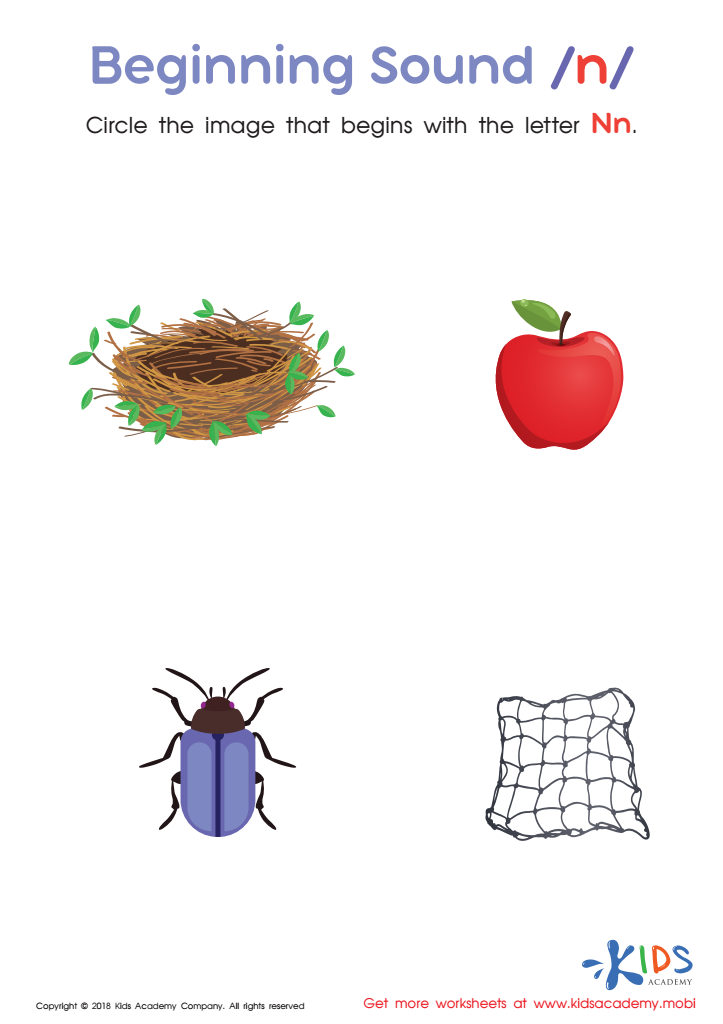

Beginning Sound «n» Worksheet
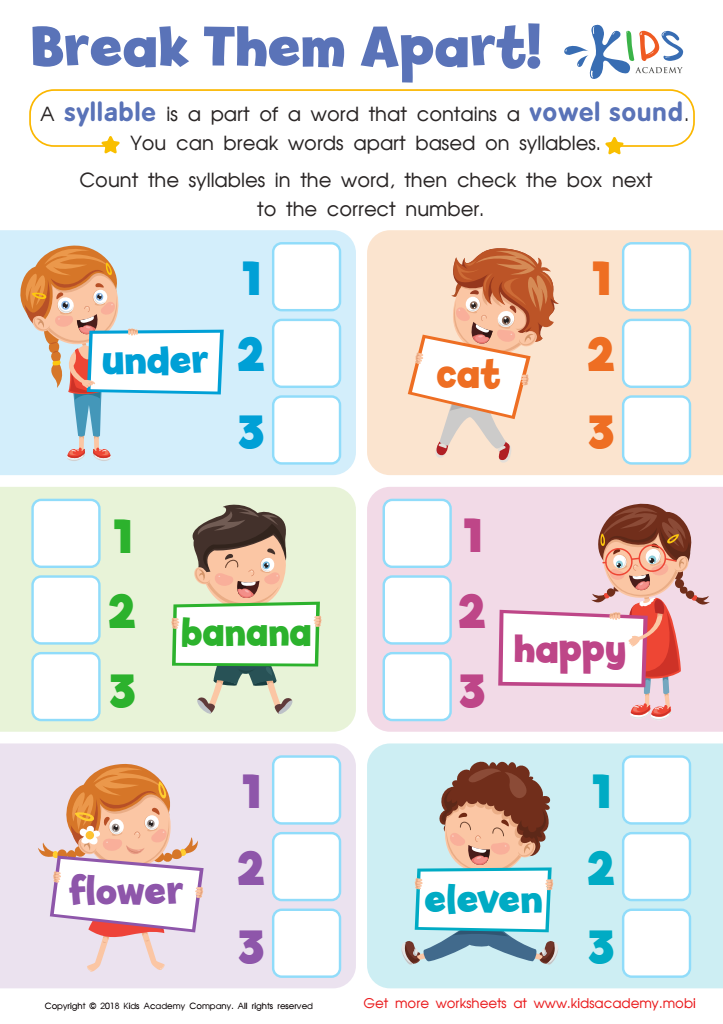

Reading: Break Them Apart Worksheet
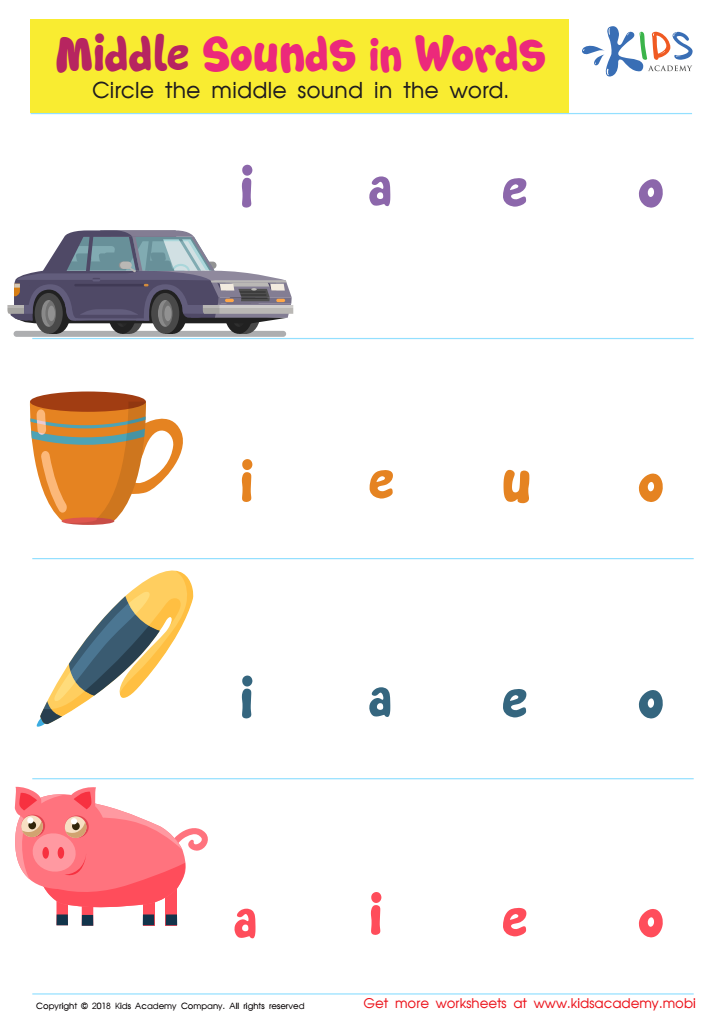

Middle Sounds in Words Worksheet
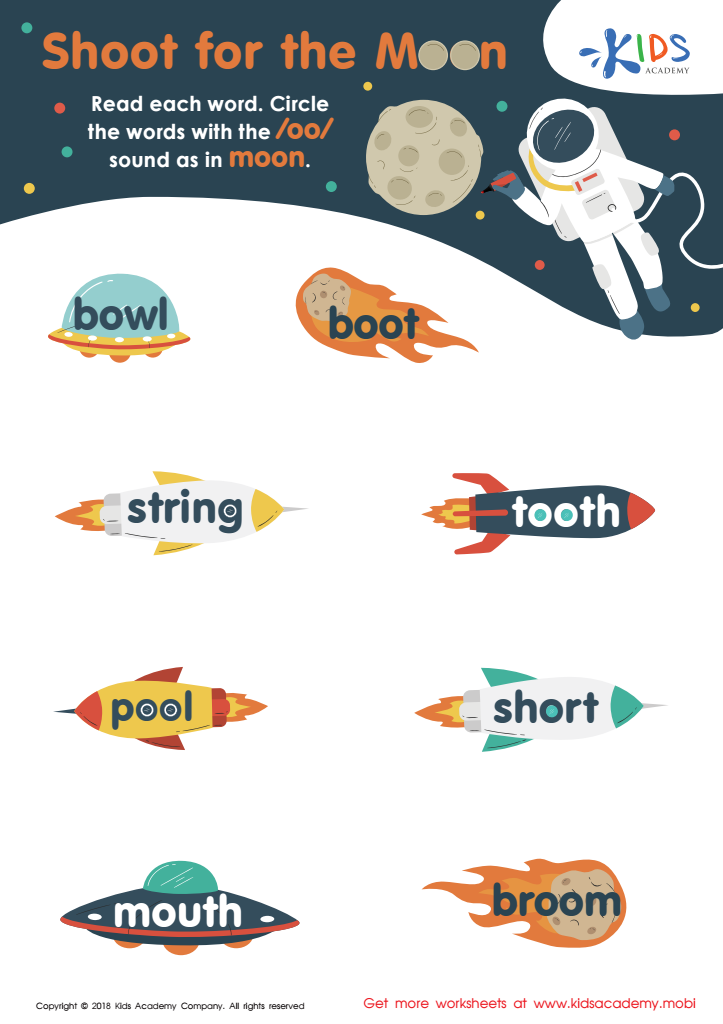

Reading: Shoot for the Moon Worksheet
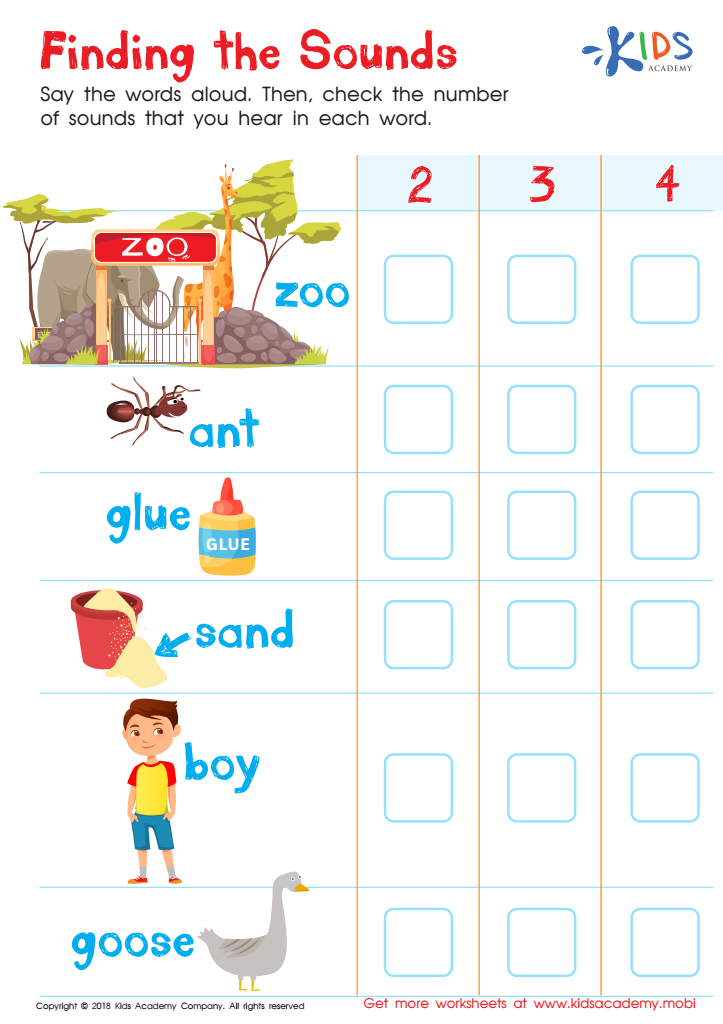

Finding the Sounds Worksheet
Vocabulary development and phonics are crucial components of language acquisition for 7-year-olds, significantly impacting their literacy skills and overall academic success. At this age, children are transitioning from learning to read to reading to learn. A strong foundation in vocabulary allows them to comprehend texts more fully and express their ideas clearly.
Phonics, the relationship between letters and their sounds, is essential for decoding words, which is vital for children as they encounter increasingly complex texts. When children grasp phonics, they gain the confidence to tackle unfamiliar words independently, fostering a love for reading.
Additionally, vocabulary and phonics are interconnected; as children build their vocabulary, their understanding of phonics strengthens because they can connect sounds to meaningful words. This synergy enhances their reading fluency, critical thinking, and comprehension skills, all of which are imperative as they progress through school.
Parents and teachers play a pivotal role in this developmental stage by engaging children with rich language experiences—through reading aloud, discussions, and interactive games. By prioritizing vocabulary and phonics, adults empower children with the tools they need for effective communication and academic perseverance, setting them up for long-term success in a literate society.

 Assign to My Students
Assign to My Students




















